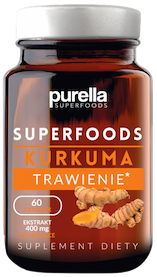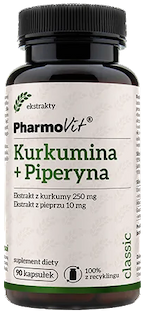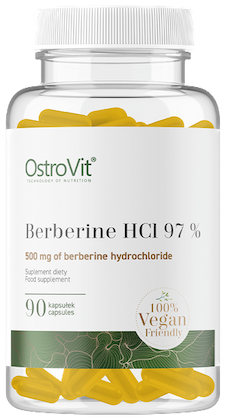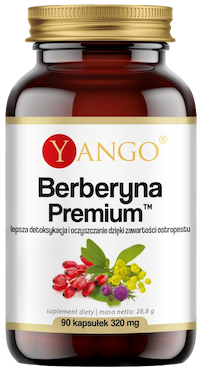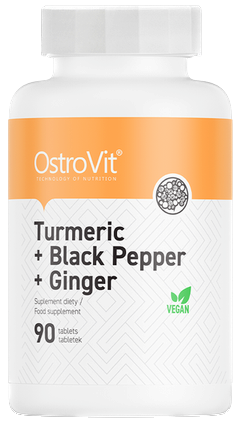Liver tests: ALT, AST, ALP, BIL and GGTP - what are they and when to perform them?
Liver tests are a test to assess the function of this organ. Find out when to perform them.


Learn more about our editorial process
.

Learn more about our editorial process
.

Learn more about our editorial process
.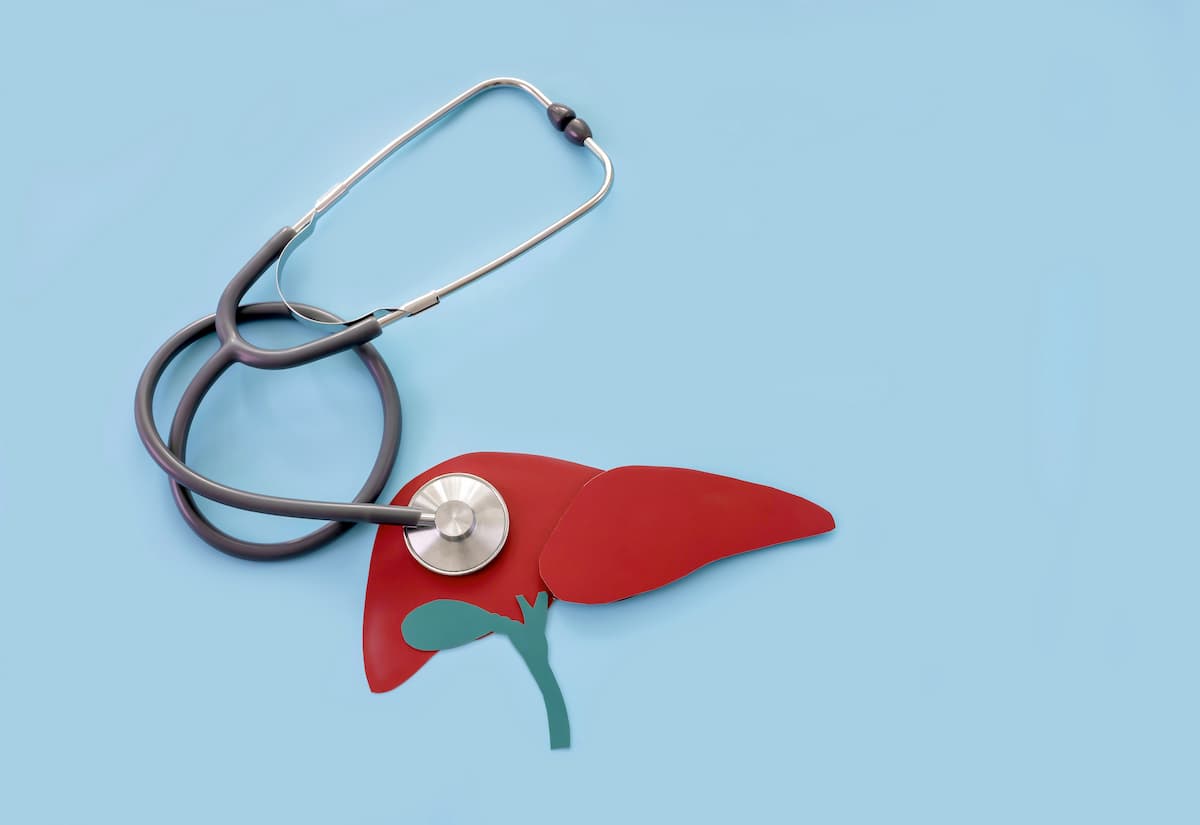
Why you can trust us
Articles on Natu.Care are written based on scientific research, data from government websites and other reliable sources. The texts are written in cooperation with doctors, nutritionists and other health and beauty experts. Articles are reviewed before publication and during significant updates.
.Learn more about our editorial process
.Information about advertisements
Content on Natu.Care may contain links to products from the sale of which we may receive a commission. When creating content, we adhere to high editorial standards and take care to be objective about the products discussed. The presence of affiliate links is not dictated by our partners, and we select the products we review ourselves completely independently.
.Learn more about our terms and Conditions
.Hepatic tests (or liver function tests) are blood tests designed to assess the function of this organ. They include determination of the levels of four enzymes (ALT, AST, ALP and GGTP) and bilurbin (BIL).
Fatty, viral inflammation or cirrhosis of the liver. Sounds dangerous, doesn't it? The most important thing in treating these conditions is to detect them quickly. One way of doing this is by performing liver tests. That is why, together with Witold Tomaszewski, MD, PhD, and Ilona Krzak, MSc, pharmacist, we present a collection of the most important information on liver function tests.
.
From this article you will learn:
- What liver tests are and what parameters they consist of .
- Who should do liver tests .
- What are the reference values for liver tests .
- How to prepare for a liver test .
- What liver tests in a child can indicate .

Sprawdź, za co pokochały go tysiące klientek Natu.Care Premium Omega-3ᵀᴳ -15% z kodem BLOG15
Natu.Care Omega-3ᵀᴳ Premium
Natu.Care Omega-3ᵀᴳ Premium dla zdrowia serca, mózgu i odporności. Najlepsza przyswajalność. Optymalna dawka 750 mg. Przebadana przez niezależne laboratorium.
Zobacz więcej
Produkt ma super skład, transparentną etykietę i co dla mnie jest ważne – małe kapsułki do połknięcia. Nie ma też nieprzyjemnego efektu odbijania rybą, który miałam spożywając inne produkty. Widzę znaczną poprawę odporności. Polecam!@Kasia P.
See also:
- Liver tablets .
- NAC (N-acetylcysteine) .
- Liver supplements [ranking + pharmacist's opinion]
- Blood tests
- Fatty (oily) liver
What are liver tests?
.
Hepatic tests or liver function tests are blood tests that can help detect abnormalities in the function of this organ. Liver tests assess the concentration of enzymes, proteins and other substances produced by the liver. Performing this test helps to check the overall health of the organ.
What tests make up the liver tests?
.
The liver test determines the activity of five parameters:
.
- Alanine aminotransferase (ALT). An enzyme found in the liver, responsible for converting protein into energy for liver cells. Damage to this organ most often results in the release of ALT into the bloodstream. The result is a significant increase in ALTand.
- Aspartate aminotransferase (AST). An enzyme that supports amino acid metabolism. It is most often (like ALT) present in serum in negligible amounts. Elevated AST levels may be indicative of liver damage or diseaseand. .
- Alkaline phosphatase (ALP). An enzyme found in both liver and bone. ALP is crucial for the breakdown of proteins in the body. Excessively high levels of this parameter can be a sign of liver damage or disease, as well as bone problemsand.
- Gamma-glutamyltranspeptidase (GGTP). An enzyme found throughout the body, but primarily in the liver. Damage to the organ causes GGTP to enter the bloodstream and elevate this parameter in the test. High concentrations of PGD may indicate bile duct damage or liver diseaseand. .
- Bilirubin. A substance produced when red blood cells break down. Bilirubin passes through the liver to be later excreted with the faeces. Excessive concentrations of this parameter may indicate liver disease or anaemia (anaemia)and.
Interesting facts
.Alanine aminotransferase is abbreviated as ALT, ALAT or GPT. All of these names are correct and can be used interchangeably.
Hepatic tests - what do they detect?
.
Hepatic tests are a valuable test that allow us to check our current state of health. What possibilities do liver tests give usand?
- .
- Detection of liver diseases, such as inflammation. .
- Detecting the progression of selected diseases e.g. cirrhosis. .
- Monitoring the progression of various conditions such as alcoholic hepatitis.
- Monitoring the progression of various conditions such as alcoholic hepatitis.
- Tracking the possible side effects of medications. .
Remember that these are just a selection of the possibilities for which liver tests can be used. These tests can uncover many other abnormalities in the workings of the body.
Hepatic tests can be used to differentiate between viral disease and bacterial disease.
 .
.
Ilona Krzak Master of Pharmacy
Cause of abnormal liver test results
.Abnormal liver test results do not come out of nowhere. They are most often caused by specific factors.
Causeof elevated liver testsand:
- excessive alcohol consumption, .
- inconsiderate use of medication, .
- obesity, .
- viral hepatitis A, B, or C,
- hepatitis.
- heart failure, .
- hepatic steatosis disease, .
- celiac disease, .
- hemochromatosis (excess iron), .
- mononucleosis, .
- cancers of the liver, .
- sepsis, .
- autoimmune hepatitis, .
Note!
.Remember that abnormal liver test results may - or may not - be caused by these factors. If yours are worrying - go to your doctor. Only a specialist can determine what's wrong with you and how to help you.
Aminotransferases increase in cases of liver disease, infarctions of various organs and strokes, among others. In contrast, their rapid decrease may not always be a sign of recovery. Sometimes, on the contrary, it may indicate a significant worsening of the prognosis and necrosis of the hepatocytes..
 .
.
Ilona Krzak Master of Pharmacy
Product description
A combination of turmeric and black pepper extract, or piperine, in the form of easy-to-swallow, vegan capsules. The product effectively supports liver function and fat digestionós, thus reducing unpleasant gastrointestinal discomforts.
Pros and cons
A combination of turmeric and black pepper extract, or piperine, in the form of easy-to-swallow, vegan capsules. The product effectively supports liver function and fat digestionós, thus reducing unpleasant gastrointestinal discomforts.
Additional information
A combination of turmeric and black pepper extract, or piperine, in the form of easy-to-swallow, vegan capsules. The product effectively supports liver function and fat digestionós, thus reducing unpleasant gastrointestinal discomforts.
A combination of turmeric and black pepper extract, or piperine, in the form of easy-to-swallow, vegan capsules. The product effectively supports liver function and fat digestionós, thus reducing unpleasant gastrointestinal discomforts.
Product description
The dietary supplement contains omega-3ᵀᴳ, or omega-3 acids in the form of trójglyceridesów. Scientific studies suggest that this form of fatty acidsós up to 2 times better absorbed than the estersós present in many dietary supplements on the market. This means that you are assured of their effectiveness and of supplying yourself with valuable omega acids.
Fatty acids omega-3 are derived from wild anchovy oil. It is a rich source of healthy fats that are essential for the health of the cardiovascular, immune and nervous systems, as well as the proper function of vision, joints muscles.
Scientific research suggests that wild anchovies are a good source of healthy fats.
Scientific research also suggests that an adequate intake of omega-3 fatty acidsós protects against and supports the treatment of depression and anxiety disorders. In addition, omega-3s influence the hydration and appearance of the skinóry and support healthy sleep.
.
The formula contains a total of 750 mg of EPA+DHA acidsós, which is three times higher than the recommended minimum of 250 mg for the Polish population. Omega-3 TG Premium has studies indicating that its TOTOX is 9, which is a very good result.
Supplementation of omega-3 fatty acidsóis recommended for anyone who does not eat 1–2 portions (approximately 300 g) of oily fish per week. Children during growth, seniors, physically active people, vegans and vegetarians, as well as patients undergoing cardiovascular treatment and prevention of heart disease also have an increased need.
Pros and cons
The dietary supplement contains omega-3ᵀᴳ, or omega-3 acids in the form of trójglyceridesów. Scientific studies suggest that this form of fatty acidsós up to 2 times better absorbed than the estersós present in many dietary supplements on the market. This means that you are assured of their effectiveness and of supplying yourself with valuable omega acids.
Fatty acids omega-3 are derived from wild anchovy oil. It is a rich source of healthy fats that are essential for the health of the cardiovascular, immune and nervous systems, as well as the proper function of vision, joints muscles.
Scientific research suggests that wild anchovies are a good source of healthy fats.
Scientific research also suggests that an adequate intake of omega-3 fatty acidsós protects against and supports the treatment of depression and anxiety disorders. In addition, omega-3s influence the hydration and appearance of the skinóry and support healthy sleep.
.
The formula contains a total of 750 mg of EPA+DHA acidsós, which is three times higher than the recommended minimum of 250 mg for the Polish population. Omega-3 TG Premium has studies indicating that its TOTOX is 9, which is a very good result.
Supplementation of omega-3 fatty acidsóis recommended for anyone who does not eat 1–2 portions (approximately 300 g) of oily fish per week. Children during growth, seniors, physically active people, vegans and vegetarians, as well as patients undergoing cardiovascular treatment and prevention of heart disease also have an increased need.
Additional information
The dietary supplement contains omega-3ᵀᴳ, or omega-3 acids in the form of trójglyceridesów. Scientific studies suggest that this form of fatty acidsós up to 2 times better absorbed than the estersós present in many dietary supplements on the market. This means that you are assured of their effectiveness and of supplying yourself with valuable omega acids.
Fatty acids omega-3 are derived from wild anchovy oil. It is a rich source of healthy fats that are essential for the health of the cardiovascular, immune and nervous systems, as well as the proper function of vision, joints muscles.
Scientific research suggests that wild anchovies are a good source of healthy fats.
Scientific research also suggests that an adequate intake of omega-3 fatty acidsós protects against and supports the treatment of depression and anxiety disorders. In addition, omega-3s influence the hydration and appearance of the skinóry and support healthy sleep.
.
The formula contains a total of 750 mg of EPA+DHA acidsós, which is three times higher than the recommended minimum of 250 mg for the Polish population. Omega-3 TG Premium has studies indicating that its TOTOX is 9, which is a very good result.
Supplementation of omega-3 fatty acidsóis recommended for anyone who does not eat 1–2 portions (approximately 300 g) of oily fish per week. Children during growth, seniors, physically active people, vegans and vegetarians, as well as patients undergoing cardiovascular treatment and prevention of heart disease also have an increased need.
Expert opinion
The dietary supplement contains omega-3ᵀᴳ, or omega-3 acids in the form of trójglyceridesów. Scientific studies suggest that this form of fatty acidsós up to 2 times better absorbed than the estersós present in many dietary supplements on the market. This means that you are assured of their effectiveness and of supplying yourself with valuable omega acids.
Fatty acids omega-3 are derived from wild anchovy oil. It is a rich source of healthy fats that are essential for the health of the cardiovascular, immune and nervous systems, as well as the proper function of vision, joints muscles.
Scientific research suggests that wild anchovies are a good source of healthy fats.
Scientific research also suggests that an adequate intake of omega-3 fatty acidsós protects against and supports the treatment of depression and anxiety disorders. In addition, omega-3s influence the hydration and appearance of the skinóry and support healthy sleep.
.
The formula contains a total of 750 mg of EPA+DHA acidsós, which is three times higher than the recommended minimum of 250 mg for the Polish population. Omega-3 TG Premium has studies indicating that its TOTOX is 9, which is a very good result.
Supplementation of omega-3 fatty acidsóis recommended for anyone who does not eat 1–2 portions (approximately 300 g) of oily fish per week. Children during growth, seniors, physically active people, vegans and vegetarians, as well as patients undergoing cardiovascular treatment and prevention of heart disease also have an increased need.
Aura Herbals My Liver
Product description
Aura Herbals My Liver is a dietary supplement thatós composed of a synergistic combination of extractsós and substances to support liver health. It acts as a protective shield thanks to its cleansing, antioxidant and anti-inflammatory properties. By strengthening the cell membranesór, the product facilitates the regeneration of damaged liver tissues, maximising liver performance.
The supplement benefits from a synergy of ingredientsós, such as turmeric and artichoke, which work togetheróly to support liver functions such as detoxification, neutralising free radicalsós, and supporting healthy fat synthesis and transport.
Aura Herbals Moja Wątroba is recommended for people whoóre exposed to daily stress, environmental or food toxins, as well as those seeking to improve overall liver health.
Pros and cons
Aura Herbals My Liver is a dietary supplement thatós composed of a synergistic combination of extractsós and substances to support liver health. It acts as a protective shield thanks to its cleansing, antioxidant and anti-inflammatory properties. By strengthening the cell membranesór, the product facilitates the regeneration of damaged liver tissues, maximising liver performance.
The supplement benefits from a synergy of ingredientsós, such as turmeric and artichoke, which work togetheróly to support liver functions such as detoxification, neutralising free radicalsós, and supporting healthy fat synthesis and transport.
Aura Herbals Moja Wątroba is recommended for people whoóre exposed to daily stress, environmental or food toxins, as well as those seeking to improve overall liver health.
Additional information
Aura Herbals My Liver is a dietary supplement thatós composed of a synergistic combination of extractsós and substances to support liver health. It acts as a protective shield thanks to its cleansing, antioxidant and anti-inflammatory properties. By strengthening the cell membranesór, the product facilitates the regeneration of damaged liver tissues, maximising liver performance.
The supplement benefits from a synergy of ingredientsós, such as turmeric and artichoke, which work togetheróly to support liver functions such as detoxification, neutralising free radicalsós, and supporting healthy fat synthesis and transport.
Aura Herbals Moja Wątroba is recommended for people whoóre exposed to daily stress, environmental or food toxins, as well as those seeking to improve overall liver health.
Pharmovit Curcumin + Piperine
Product description
Curcumin + Piperine Pharmovit is a dietary supplement that supports liver health, fatódigestion, joints and the immune system. Long Oyster Extract provides up to 237.50 mg of curcumin, while Black Pepper Fruit Extract contains 9.50 mg of piperine.
The supplement has no fillers or colourings
.Pros and cons
Curcumin + Piperine Pharmovit is a dietary supplement that supports liver health, fatódigestion, joints and the immune system. Long Oyster Extract provides up to 237.50 mg of curcumin, while Black Pepper Fruit Extract contains 9.50 mg of piperine.
The supplement has no fillers or colourings
.Additional information
Curcumin + Piperine Pharmovit is a dietary supplement that supports liver health, fatódigestion, joints and the immune system. Long Oyster Extract provides up to 237.50 mg of curcumin, while Black Pepper Fruit Extract contains 9.50 mg of piperine.
The supplement has no fillers or colourings
.Curcumin + Piperine Pharmovit is a dietary supplement that supports liver health, fatódigestion, joints and the immune system. Long Oyster Extract provides up to 237.50 mg of curcumin, while Black Pepper Fruit Extract contains 9.50 mg of piperine.
The supplement has no fillers or colourings
.Product description
Berberine supports sugar and insulin metabolism, the cardiovascular system and liver function. It may support weight loss, protect the liver and have a positive effect on the gut microbiome.
Pros and cons
Berberine supports sugar and insulin metabolism, the cardiovascular system and liver function. It may support weight loss, protect the liver and have a positive effect on the gut microbiome.
Additional information
Berberine supports sugar and insulin metabolism, the cardiovascular system and liver function. It may support weight loss, protect the liver and have a positive effect on the gut microbiome.
Berberine supports sugar and insulin metabolism, the cardiovascular system and liver function. It may support weight loss, protect the liver and have a positive effect on the gut microbiome.
Product description
A dietary supplement with berberine, whichóra has a positive effect on sugar-insulin balance and reduces the risk of heart disease. It can support the weight loss process.
Pros and cons
A dietary supplement with berberine, whichóra has a positive effect on sugar-insulin balance and reduces the risk of heart disease. It can support the weight loss process.
Additional information
A dietary supplement with berberine, whichóra has a positive effect on sugar-insulin balance and reduces the risk of heart disease. It can support the weight loss process.
A dietary supplement with berberine, whichóra has a positive effect on sugar-insulin balance and reduces the risk of heart disease. It can support the weight loss process.
Product description
Preparation with standardised extracts with herbal ingredients thatóre positively influencing the functioning of the body. Curcumin improves digestion, has an antioxidant effect and supports jointós health. Ginger helps to reduce inflammationólation, has an anti-bioactive effect and is rich in antioxidants. Piperine increases the bioavailability of someós food substances, has anti-inflammatory effects and increases thermogenesis in the body.
Pros and cons
Preparation with standardised extracts with herbal ingredients thatóre positively influencing the functioning of the body. Curcumin improves digestion, has an antioxidant effect and supports jointós health. Ginger helps to reduce inflammationólation, has an anti-bioactive effect and is rich in antioxidants. Piperine increases the bioavailability of someós food substances, has anti-inflammatory effects and increases thermogenesis in the body.
Additional information
Preparation with standardised extracts with herbal ingredients thatóre positively influencing the functioning of the body. Curcumin improves digestion, has an antioxidant effect and supports jointós health. Ginger helps to reduce inflammationólation, has an anti-bioactive effect and is rich in antioxidants. Piperine increases the bioavailability of someós food substances, has anti-inflammatory effects and increases thermogenesis in the body.
What are the indications for liver tests?
.Most often you will be referred for a liver test by your GP who recognises that there is something wrong with your health. However, there are a few symptoms that can indicate liver problems. If you are experiencing them, it is worth having liver tests done.
Indicationsfor liver testsand:
- nausea, .
- vomiting, .
- abdominal pain, .
- jaundice, .
- light stool, .
- fatigue, .
Risk groups
.In addition to the symptoms that are indications for liver tests, it is also important to distinguish risk groups, i.e. people who are at particular risk of liver disease.
Most important risk factors for liver disease:
- family history of liver disease, .
- alcoholic disease, .
- suspected viral hepatitis, .
- taking medications that can cause liver damage, .
How to prepare for liver tests?
.The liver tests are performed on an empty stomach. You will most likely be advised by your doctor not to drink anything or eat for 8-12 hours before the test. You should also refrain from eating heavy-digestible foods and alcohol a few days before the testand.
.Do not do strenuous exercise before the aminotransferase test - this may interfere with the results..
 .
.
Ilona Krzak Master of Pharmacy
Hepatic tests - what does the test look like?
.The liver test is very simple and involves only a few steps. It usually takes less than 5 minutes. What can you expectand?
- Cleansing of the skin (usually on the bend of the arm).
- Fixing the bandage.
- Placing a tourniquet over the cleansed area.
- Placing a tourniquet over the cleansed area.
- Putting a needle into a vein.
- Putting a needle into a vein.
- Drawing blood. .
- Removing the tourniquet. .
If you are apprehensive about taking blood - try to look the other way and not think about the test itself. The prick is very gentle and not associated with much pain, so there is no cause for alarm.
.Most often, however, the puncture will leave behind a small bruise. If this mark, along with the pain, does not disappear within a few days - see your doctorand.
.
Liver tests - reference values
.Each liver test has a range of reference values. Elevated results can indicate problems with the organ.
Normsof liver testsand:
- ALT: 4-36 IU/l .
- AST: 5-30 IU/l .
- ALP: 40-129 IU/l .
- GGTP: 6-50 IU/l .
- Bilirubin: 2-17 µmol/l .
Reference values may vary slightly depending on the laboratory, the method of performance, and the units in which they are expressed. Each institution provides a range of reference values along with test results..
 .
.
Witold Tomaszewskidoctor of medical sciences
.How to lower ALT and AST levels
.To lower ALT and AST introduce a suitable diet (rich in folic acid), do physical activity and avoid alcohol. Also take in more omega-3 acids, and consider drinking coffee more often. In some cases, liver tablets and vitamin B9 supplements will also prove valuable.
ALAT can fluctuate by up to 45% during the day..
 .
.
Ilona Krzak Master of Pharmacy
Would you like to learn more about the beneficial properties of all omega acids?
.Follow this article:Omega acids - what they are, types, properties, deficiency
How to keep liver tests normal?
.Hepatic tests are a preventive test that we should perform once a year. This makes it possible to detect possible conditions quickly. In the prevention of elevated liver tests, it is important toand:
- balanced diet, .
- regular meals, .
- physical activity, .
- drinking adequate amounts of water, .
- avoiding alcohol, .
Hepatic tests in pregnancy
.An abnormal liver test result in pregnancy can herald health problems for both, the woman and the foetus. Most commonly, elevated concentrations are indicative of pre-eclampsia. A mother-to-be who has abnormal liver tests must see her doctorand.
Note!
.Every pregnant woman should have a liver test as a preventive measure.
Elevated liver tests in a baby - what to do?
.An elevated liver function test in a baby is a warning sign that something is wrong with the baby's organ. More often than not, following these results, the doctor will recommend further tests. What symptoms indicate the need for a liver test in a child?
Symptoms that may accompany abnormal liver test results in a childand:
- clammy abdomen, .
- vomiting, .
- diarrhoea, .
- swelling of arms and legs, .
- jaundice, .
- pain in the joints,
- fever, .
- fever, .
- rash, .
Warning box!
.Do you notice these symptoms in your child? See your doctor immediately, who will most likely refer you for liver tests and possibly other tests as well.
Please see your doctor.
See also:
- Thyroid tests [which ones to do + norms + results]
- Cortisol testing [norms and indications + where to perform]
Summary
.Remember from this article some of the most important information.
- Hepatic tests are a test that checks the function of this organ.
- Hepatic tests are a test that checks the function of the liver.
- Hepatic tests indicate the concentration of five parameters in the blood - ALT, AST, ALP, GGTP and bilirubin.
- Hepatic tests are performed to check the function of the liver.
- Checking liver tests allows, among other things, to detect diseases and abnormalities in the functioning of this organ, to determine the severity of selected diseases, and to follow the side effects of medication.
- Abnormal liver tests can be caused, for example, by obesity, excessive alcohol consumption or diseases such as liver cancer, viral hepatitis or mononucleosis. .
- Indications for liver tests include nausea, vomiting, jaundice or abdominal pain. .
- Adequate diet, avoidance of alcohol and physical activity can improve liver test results. .
- Fasting is required for liver tests - do not eat or drink anything 8-12 hours before the test. .
- Abnormal liver test results in a child should be consulted immediately. .
FAQ
.What ALAT result is of concern?
.Any ALAT result that exceeds the reference values should be of concern. Normally, ALAT levels should be below 36 IU/L. However, this is a conventional assumption (it can vary in relation to gender or body weight), so it is up to your doctor to determine whether your ALAT result is of concern and what steps to take.
Does alcohol affect liver tests?
.Yes, alcohol is the greatest enemy of the liver. What's more, you should not drink alcohol a few days before your liver tests. Ingested liquor can interfere with the results of these tests. Most commonly, they will result in elevated AST and GPT. If you have consumed alcohol before the test, always inform your doctor.
Is it possible to do liver tests while having a cold?
.No, most blood tests should not be carried out when you have a cold. The infection that develops in the body can interfere with the test results, making them unreliable. However, it is up to your doctor to decide whether hepatic tests can be performed during a cold. Therefore, always inform him or her of your condition.
How does coffee affect liver function tests?
.Coffee supports the function of the liver. Its drinking can lower elevated liver test results. What's more, regular coffee drinking can reduce the risk of liver fibrosis and cirrhosis, as well as slowing the progression of these diseases. All types of coffee have been found to have a positive effect on the liver.
What do elevated liver tests indicate?
.Increased liver tests can indicate damage or inflammation in the liver. If your test results have indicated that your liver tests are not normal, contact your doctor immediately. This could be a sign of a serious condition such as hepatitis C, steatosis, cirrhosis or even cancer.
What can be done to regenerate the liver?
.First and foremost, to regenerate the liver, you need to wean off anything that negatively affects it, including:
- alcohol, .
- cigarettes, .
- fatty, unhealthy foods, .
The liver is also badly affected by chronic stress.
.A diet suitable for the liver is rich in:
.- fruits, .
- vegetables, .
- proteins (poultry, fish, legumes), .
- nuts, .
Regeneration can also be supported with tablets and liver supplements.
Will liver tests detect cancer?
.No, hepatic tests will not detect cancer. However, they can be a very good basis for further liver diagnosis. Imaging studies such as ultrasound, CT (computed tomography), MR (magnetic resonance imaging), as well as biopsy and histopathology play a key role in detecting liver cancer.
Resources
.See all
.Berzigotti, A., Saran, U., & Dufour, J.-F. (2016). Physical activity and liver diseases. Hepatology, 63(3), 1026. https://doi.org/10.1002/hep.28132
Blood Test: Liver Function Tests (for Teens)-Nemours KidsHealth. (n.d.). Retrieved March 15, 2023, from https://kidshealth.org/en/teens/test-liver-function.html
Cirrhosis. (2017, October 20). Nhs.Uk. https://www.nhs.uk/conditions/cirrhosis/
Elevated liver enzymes Causes. (n.d.). Mayo Clinic. Retrieved March 15, 2023, from https://www.mayoclinic.org/symptoms/elevated-liver-enzymes/basics/definition/sym-20050830
Gamma-glutamyl transferase (GGT) Test: MedlinePlus Medical Test. (n.d.). Retrieved March 15, 2023, from https://medlineplus.gov/lab-tests/gamma-glutamyl-transferase-ggt-test/
Lala, V., Zubair, M., & Minter, D. A. (2022). Liver Function Tests. In StatPearls. StatPearls Publishing. http://www.ncbi.nlm.nih.gov/books/NBK482489/
.Liver Diseases & Symptoms in Children. (n.d.). Retrieved March 15, 2023, from https://www.ssmhealth.com/cardinal-glennon/conditions-treatments/pediatric-gastroenterology/liver-diseases
Liver Function Tests: MedlinePlus Medical Test. (n.d.). Retrieved March 15, 2023, from https://medlineplus.gov/lab-tests/liver-function-tests/
Liver function tests-Mayo Clinic. (n.d.). Retrieved March 15, 2023, from https://www.mayoclinic.org/tests-procedures/liver-function-tests/about/pac-20394595
Liver problems-Symptoms and causes. (n.d.). Mayo Clinic. Retrieved March 15, 2023, from https://www.mayoclinic.org/diseases-conditions/liver-problems/symptoms-causes/syc-20374502
Mishra, N., Mishra, V. N., & Thakur, P. (2016). Study of Abnormal Liver Function Test during Pregnancy in a Tertiary Care Hospital in Chhattisgarh. The Journal of Obstetrics and Gynecology of India, 66(1), 129-135. https://doi.org/10.1007/s13224-015-0830-6
Office of Dietary Supplements-Folate. (n.d.). Retrieved March 15, 2023, from https://ods.od.nih.gov/factsheets/Folate-HealthProfessional/
Editorials
Meet the team


What cortisol testing is, why it is important and what symptoms should prompt you to do it.
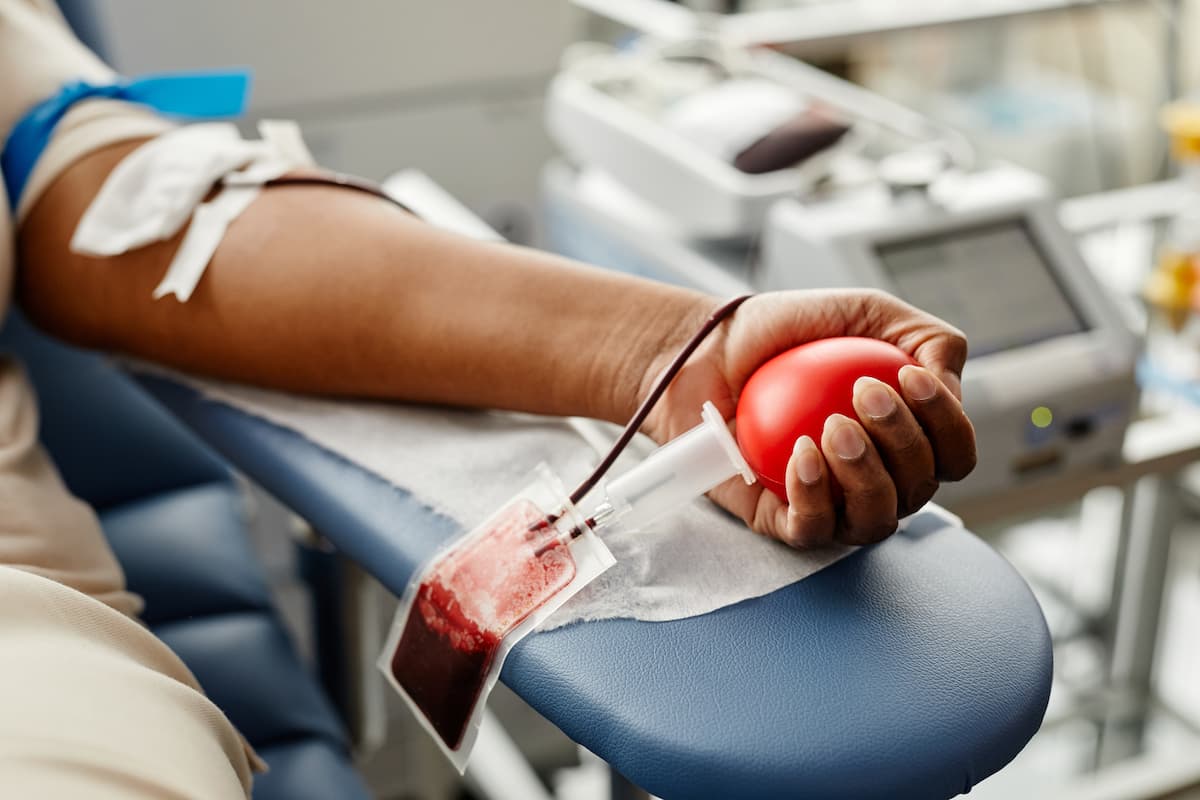
Blood tests can detect many conditions, monitor treatment and also assess the patient's general condition.

The thyroid doesn't hurt and the symptoms of disease can be easily ignored. Take care of prevention and get your thyroid tested.
